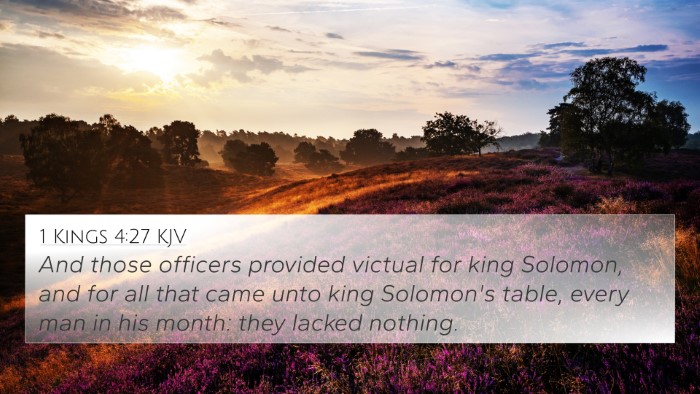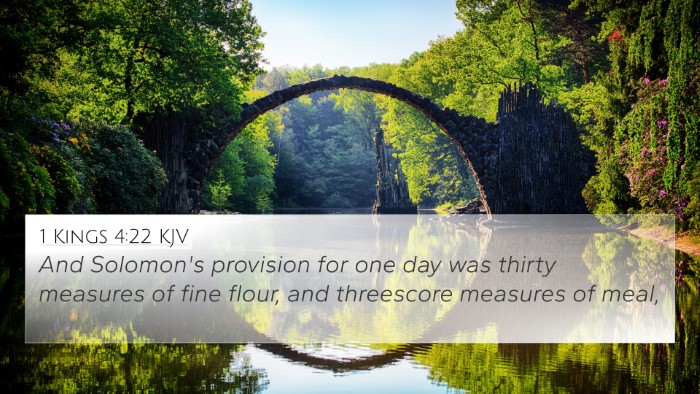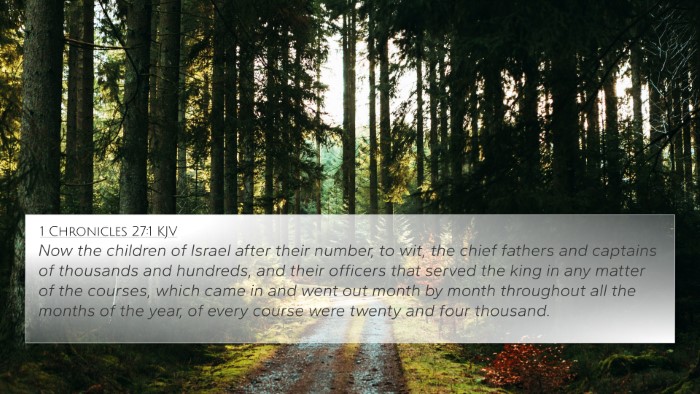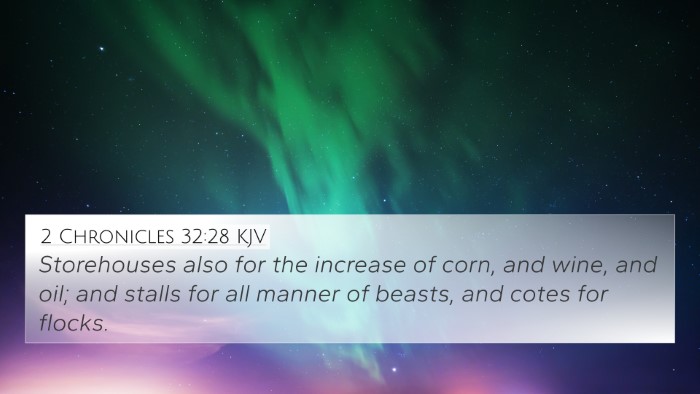Understanding 1 Samuel 8:12
Verse: 1 Samuel 8:12
This verse reads: “And he will appoint for himself commanders of thousands and commanders of fifties, and some to plow his ground and to reap his harvest, and to make his implements of war and the equipment for his chariots.”
Summary of Meaning
In this passage, God describes the future consequences of Israel's request for a king. The prophet Samuel warns the people that choosing a monarchy will lead to the creation of an oppressive regime. This warning includes the establishment of a hierarchy with military leaders and the conscription of labor for agricultural and military purposes, underscoring the heavy demands a king would place on the people.
Commentary Insights
-
Matthew Henry:
Henry emphasizes that this request for a king was a rejection of God's rule. He highlights that earthly kings often exploit their subjects, drawing attention to the burdens of leadership. In this context, he notes that the Israelites are trading spiritual leadership for earthly governance, which will lead to hardship.
-
Albert Barnes:
Barnes points out that the specifics of commanders and laborers reveal the systematic approach kings adopt in exercising authority. He views this as a prophetic declaration of the socio-economic consequences that arise when God’s people forsake His leadership for human authority.
-
Adam Clarke:
Clarke elaborates on the labor demands mentioned in the text. He interprets the need for commanders and laborers as indicative of a king's intention to build an organized state, which reflects a shift from dependence on God to reliance on human systems. This contrast marks a pivotal moment in Israel's history.
Bible Cross-References
To better understand the implications of 1 Samuel 8:12, consider these related verses:
- Deuteronomy 17:14-20: The guidelines for Israel when appointing a king.
- 1 Samuel 10:17-19: The rejection of God as king and the call for earthly leadership.
- 1 Samuel 12:12-18: Samuel's lament over Israel's choice to have a king and his warning of consequences.
- 1 Samuel 13:14: God’s choice for a king after Saul, indicating the divine preference for a leader with God’s heart.
- 2 Samuel 8:15-18: King David's administration and military leadership, illustrating the fulfillment of Samuel's prophecy.
- 1 Kings 12:4: The Israelites' lament about the burdens imposed by the new king, connecting to Samuel's warning.
- 1 Chronicles 28:4-7: God's choice of Solomon as a leader, reinforcing the need for divine selection in leadership.
Connections Between Bible Verses
1 Samuel 8:12 serves as a critical link in the thematic study of leadership throughout the Bible:
- The builders of Israel’s monarchy experience a drastic shift in governance from theocratic to secular authority.
- Analyzing Old Testament warnings against kingship can enrich understanding of New Testament teachings on servanthood and Christ's ultimate kingship.
Thematic Bible Verse Connections
Key themes arising from this verse include:
- The Burden of Leadership: Recognizing the challenges of earthly kingship as seen in Ezekiel 34:4, where God critiques poor shepherds.
- Divine vs. Human Authority: Exploring the preference for God’s rule illustrated in verses such as Psalm 20:7.
- Accountability of Leadership: Understanding the serious nature of leadership responsibilities as echoed in James 3:1.
Inter-Biblical Dialogue
The narrative that unfolds from Israel's choice of a king culminates in the New Testament, where the ideal of Jesus as the King of Kings stands in stark contrast to the flawed monarchies of the world. Furthermore, explorations of these themes through parallel verses help uncover a rich tapestry of scriptural wisdom.
Tools for Bible Cross-Referencing
For further study, consider using the following tools to delve into cross-referencing:
- Bible Concordance
- Cross-reference Bible Study Guides
- Bible Reference Resources








